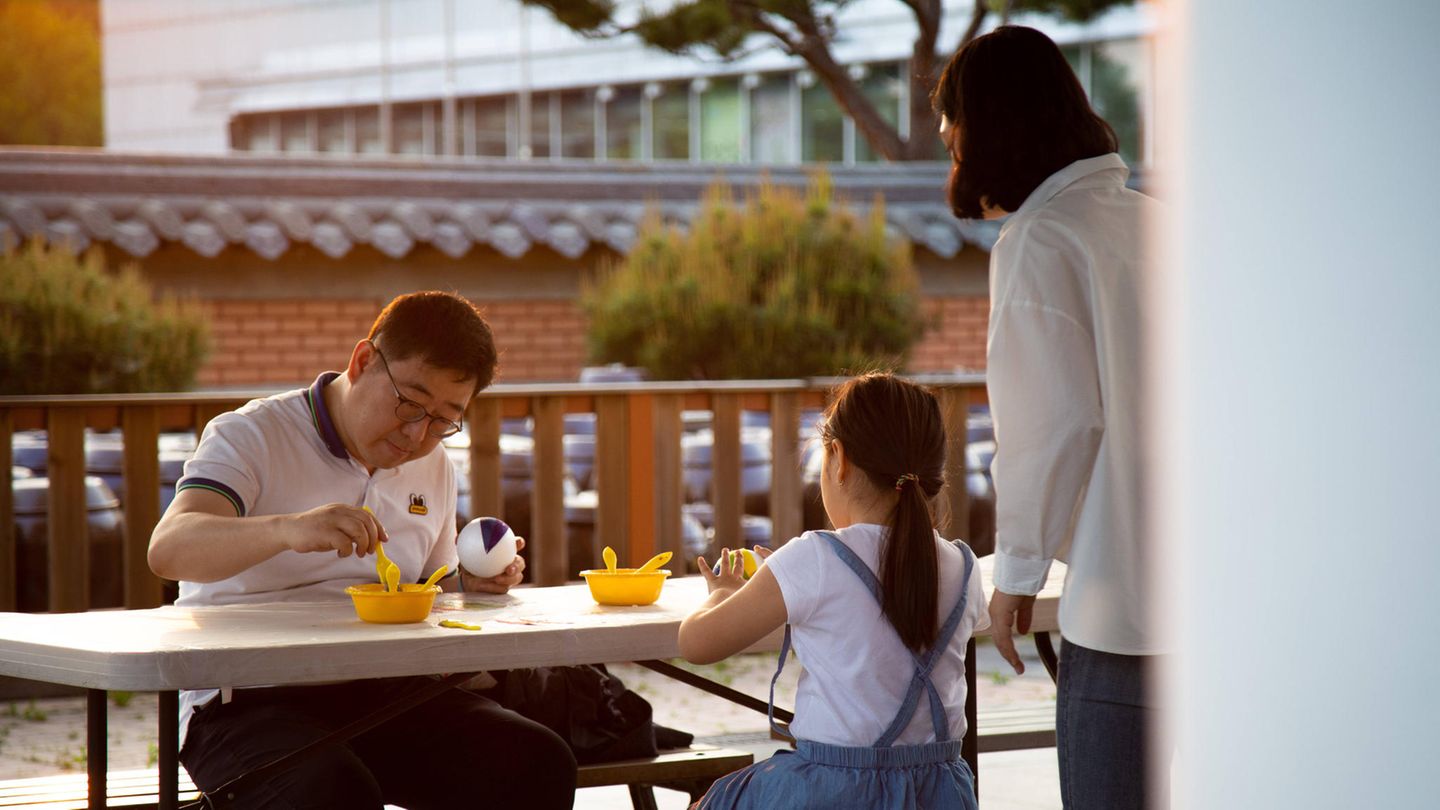South Korea has the fewest children in the world. The government is trying to reverse the trend, but the proposed measures have been widely criticized and ignore the real problems.
For years, South Korea has been sinking billions to reverse a trend that will cost the country dearly. The population is shrinking, too few people are having children. This also affects the economy and the pension system. The Government of President Yoon Suk-Yeol now proposes some controversial measures. Among them: men under 30 years of age with three or more children exempt from military service, increase child benefit in the first year of birth or abolish the minimum wage for domestic help from abroad. This is reported, among other things, by the British newspaper “Guardian”. Critics accuse the government of “modern slavery,” activists speak of discrimination against women.
South Korea has the lowest birthrate per woman in the world. According to the Federal Statistical Office, in Germany it is 1.53, the OECD average (Organization for Economic Cooperation and Development) was 1.59 births per woman in 2020.
The population is aging and South Korea is running out of young people
The problem has existed for decades, but no government action has been effective enough to change it. $200 billion would have been spent on it over the past 16 years, the president said Yoon Suk-Yeol now at a meeting, but all these measures “failed”. In the coming months, the Conservative government is expected to unveil a strategy. But the measures are mainly met with criticism.
So far, the increase in childlessness has primarily been justified by economic factors. Rents and real estate prices are rising in South Korea, education sometimes costs money. But the problem goes deeper. Activists denounce the social position of women in particular and speak of discrimination in a statement: “Without solving the root cause of ‘low fertility’, no woman will suddenly bear a child, even if exemption from military service is presented as an advantage.”
The criticism: Liberating men from military service would favor men in particular. In South Korea, on the other hand, women continue to do most of the care work, such as raising children and doing housework, and they will not relieve them. The idea of excluding domestic help from abroad from the minimum wage also met with criticism. Wee Seon-Hee, spokeswoman for the opposition Justice Party, described the idea in a statement as racial discrimination and “modern slavery”.
In an OECD comparison, the gender pay gap is highest in South Korea
At the same time, working conditions make it difficult for families to give time for family planning. In a comparison of the industrial nations worldwide, South Korea has the . Only two weeks ago, the government wanted to increase the maximum working week from 52 to 69 hours, which was overturned due to loud protests from the younger generation.
But the country also has special . In an OECD comparison of industrialized nations, South Korea is in last place when it comes to gender pay equality. The so-called Gender Pay Gap is included there. For comparison: the OECD average is twelve percent, Germany is 14.2 percent. Activists from the Goyang Women’s Association also criticize this: “What we need is not exemption from military service, but a society in which women’s careers are not interrupted even after childbirth.”
Restricted area between North and South Korea
At the best guarded border in the world
Activists criticize an overly patriarchal society
In addition, South Korean society makes it almost impossible for single parents or homosexual couples to have children or raise them alone. So far, South Korea has not recognized same-sex partnerships. National Assembly Speaker Kim Jin-pyo even proposed in 2022 to increase the birth rate by “curing” homosexuality through harmful measures such as so-called conversion therapies. In Germany, these therapies are banned in 2020 because they are proven to be harmful and lead to more discrimination.
In general, if the average birth rate is 2.1 children, the population of a country is not shrinking. The entire European Union has been below this value since the 1970s. Other industrial nations are also trying to counteract the trend. Japan, for example, pays new parents a one-off payment of around 2,900 euros, and Germany is trying to expand childcare.
Sources: , “, , , OECD, “, ,
Source: Stern
I have been working in the news industry for over 6 years, first as a reporter and now as an editor. I have covered politics extensively, and my work has appeared in major newspapers and online news outlets around the world. In addition to my writing, I also contribute regularly to 24 Hours World.




